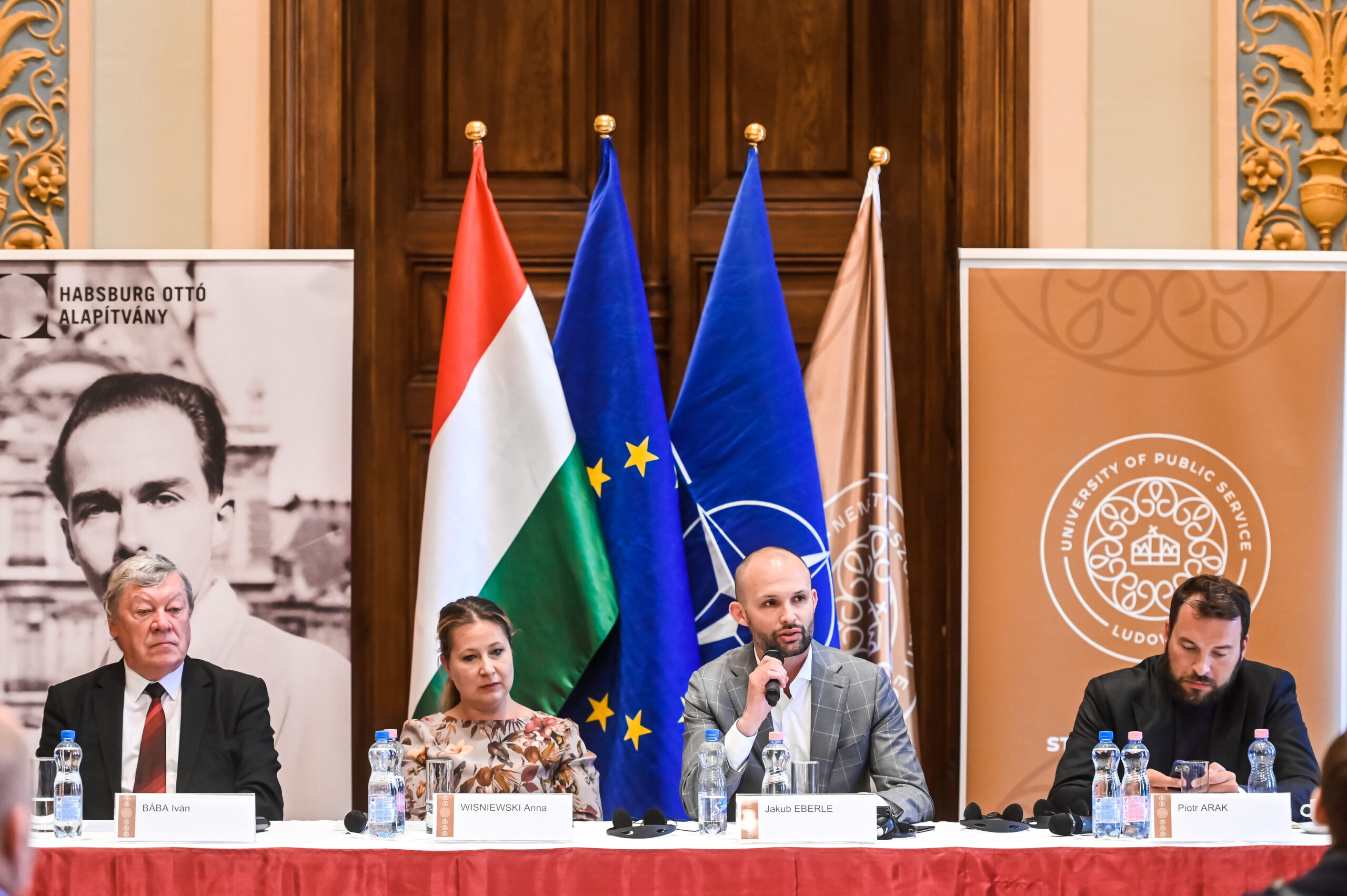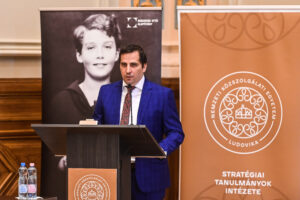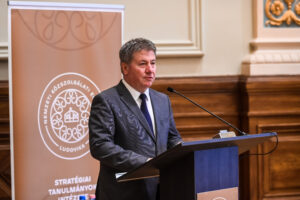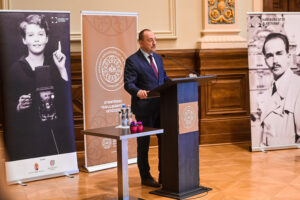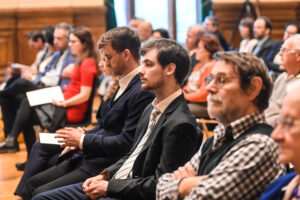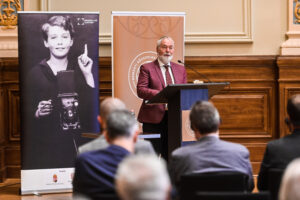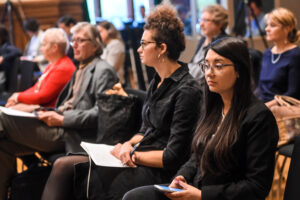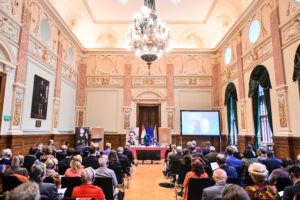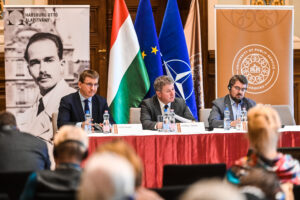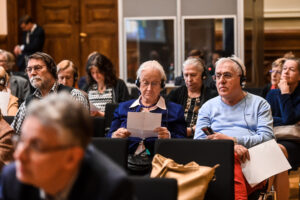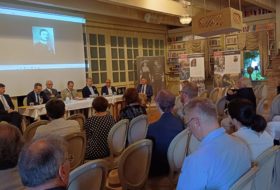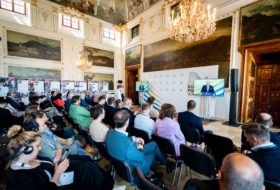Cooperation within the V4 has recently been put to the test by the epidemic, but even more so by Russia, which is working to restore its former influence in the post-Soviet region and is not reluctant to engage in belligerent aggression. Despite the previous intensive cooperation, after 24 February the internal fractures that had already existed became apparent and in many respects rewrote the mechanisms of operation that had become established, including the political practice of cautious avoidance of sensitive issues and pragmatic cooperation that had proved effective until then. As several speakers pointed out, in the current situation, where the dynamics of cooperation seem to be breaking down, there is a particular need for a proper harmonisation of objectives and interests, and for further development of the practice of “respectful disagreement”. However, the recent shocks have not only affected the internal cohesion of the Visegrad alliance, but have also prompted a rethink of a number of economic and political issues in its relations with Germany.
In his welcome speech, Gergely Prőhle, Director of the Otto von Habsburg Foundation, recalled the intense commitment of the regime-changing intellectuals to Central Europe and how this “imagined community” helped the search for a political path at the time, and provided an interpretative framework that was able to transcend the grey reality of the socialist bloc and the Cold War divisions. He also stressed the importance of frank dialogue in a political situation as acute as the current one, where different focuses on the assessment of the war in Ukraine pose a serious test for cooperation.
Zsolt Németh, Chairman of the Foreign Affairs Committee of the Hungarian Parliament, pointed out in his introductory speech that the V4 as a specific Central European cooperation and its partnership with Germany can be considered a real political and economic success story. However, the pragmatic basis of these relations was greatly transformed by the war crisis. In the politician’s view, the Hungarian position is closer to that of Germany and further away from the Polish and Anglo-Saxon positions. The assessment of the situation based on different points of view, however, does not mean that there is any disagreement on the perception of the war, and Hungary, like other member states, has been and is actively and committedly involved in European sanctions policies. Taking a European perspective, Zsolt Németh said that despite the differences of opinion, the growing European unity of recent months is a cause for optimism.
In his introduction, Markus Meckel, the last Foreign Minister of the GDR and former Social Democrat member of the Bundestag, drew attention to the common historical heritage of the Visegrad countries and the East German regime change, as well as the importance of the specific Central European experience. Consequently, the accession of the Central European countries to the Euro-Atlantic community can also be seen as the completion of integration. He added, however, that the Union is a community of values and rights, which entails obligations for all Member States, including the Visegrad countries. In his speech, the German politician pointed out: the war between Russia and Ukraine has made it clearer than ever that there is an urgent need to rethink relations within Europe, and in particular the German-Visegrad relations, which he considers to be of the utmost importance. In his view, this can help to build a united vision of Europe based on common interests and mutual respect.
Evaluating the historical context and background of Visegrad cooperation and its current situation, Iván Bába, former Hungarian Ambassador and State Secretary for Foreign Affairs in Warsaw, spoke about the importance of the specific Central European experiences that were indispensable preconditions for the cooperation and which still form the basis of the V4 cooperation. In his view, both the political and social conditions were optimal for the development of such a partnership during the period of regime change, and although the intensity of cooperation has been rather uneven in recent decades, it is worth noting that since 2010 the Hungarian government has been placing great emphasis on deepening relations between the Visegrad countries.
András Rácz, a research fellow at the Centre for Strategic and Defense Studies of the National University of Public Service, reviewed Central Europe’s relations with Russia and Ukraine, especially in the light of the annexation of Crimea in 2014 and the Russian armed aggression in February. He stressed that in recent weeks the existing fractures in Central Europe, which is fundamentally divided over Russia, have become even more tangible. Managing the consequences of these in an intelligent and considered way is, in his view, our shared responsibility.
Analysing the foreign policy context of the situation, Tomáš Strážay, Director of the Slovak Foreign Policy Association, and Jakub Eberle, Research Director of the Institute of International Relations in Prague, pointed out that the current circumstances clearly show the diverging interests of the Visegrad countries in many respects, but that a pragmatic partnership around common goals, including further strengthening relations with Germany, can help to address the problems by building on existing opportunities. There is no doubt, however, and both speakers agreed, that the current situation, with its divergent readings, is a less harmonious period for the V4 alliance, which, while not burdened by irresolvable differences, needs to be properly managed.
Regarding cooperation between the Visegrad Four and Germany, Jürgen Illing, former Managing Director of the German-Hungarian Chamber of Industry and Commerce, and Piotr Arak, Director of the Polish Economic Institute, focused on economic aspects. They pointed out that the region has benefited greatly from the diverse economic relations that have developed over the past three decades and from Germany’s recent economic expansion. However, the recent changes in value and supply chains, as well as the shift in economic structures, could significantly change the scenarios. The speakers indicated that putting cooperation on a pragmatic foundation is a desirable goal, but at the same time – and this is particularly important in the current situation – moral aspects cannot be left out of political and economic decision-making. In addition, there is a strong need to consider the psychological factors that influence investment confidence.
Photos by Dénes Szilágyi
